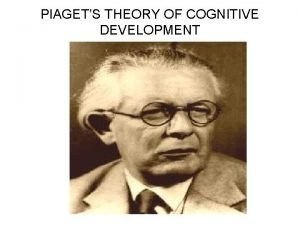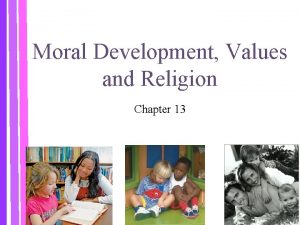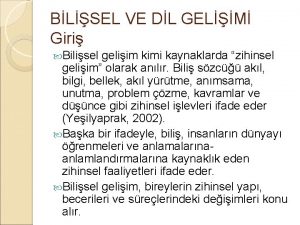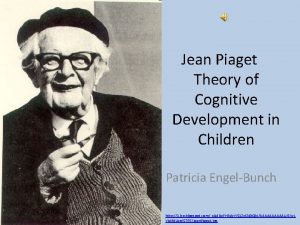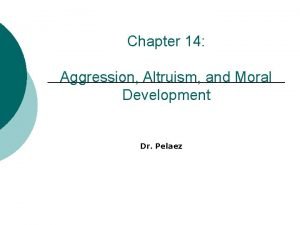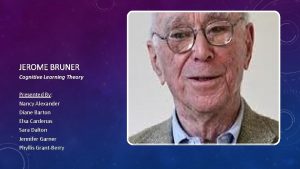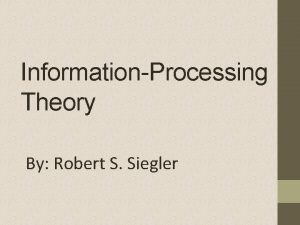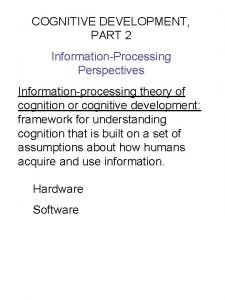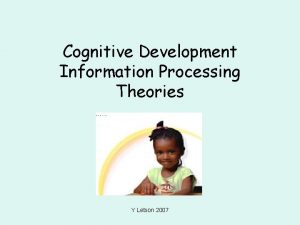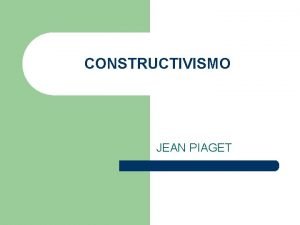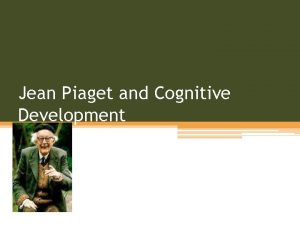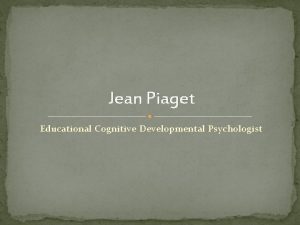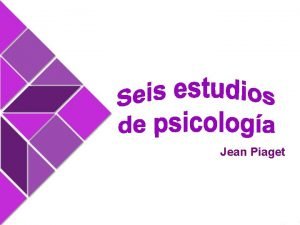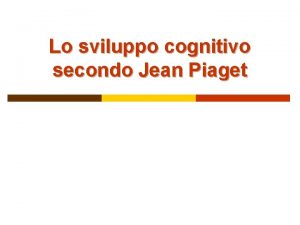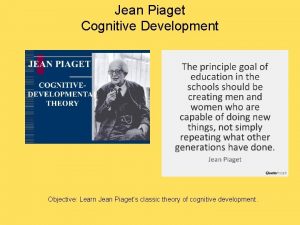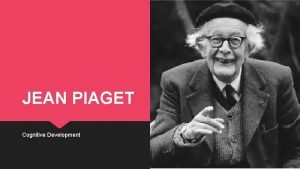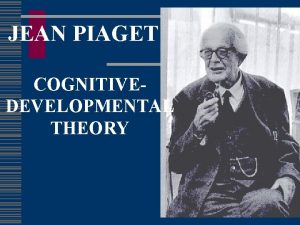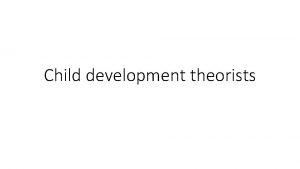Jean Piaget Theory of Cognitive Development The ManA














- Slides: 14

Jean Piaget Theory of Cognitive Development

The Man--A brief History A Swiss psychologist, born in 1896. He developed the most widely respected theory of cognitive development. Through theories and research Piaget helped us to understand appreciate the cognitive development of infants and children.

More about Piaget: He discovered that children develop their intelligence in patterns according to their age. Learning stages appear in the same order in all children, but the timing of the stages appearance is based on the individual

And yet more… Parents or teachers cannot force children to develop any faster than their abilities mature. The capacity for intellectual development is not matured unless it is used (“use it or lose it”).

Piaget’s Cognitive Development Model Stage 1 (birth - 2 yrs. ): Sensorimotor Stage 2 (3 - 7 yrs. ): Preoperational Stage 3 (7 -11 yrs. ): Concrete Operational Stage 4 (12 - adult): Formal Operational (hint: write this down!)

Sensorimotor Stage The first stage of learning, during which babies learn primarily through their senses and their own actions. During this time a baby is entirely egocentric, thinking only of themselves. Baby develops concept of object permanence, or the idea that an object out of sight still exists.

Preoperational Stage Children think about everything in terms of their own activities and their own perceptions. Children in this stage do not think like adults, and should not be treated like adults, Piaget believed.

Preoperational: More info. Strange logic: A child in this stage will truly think that the sun goes to bed at night because they do. Or they believe that an 8 oz. glass of juice becomes “more to drink” when it is poured from a short fat container to a tall thin container because the liquid is “taller”. (known as Conservation)

Conservation Example

At the preoperational stage, a child believes that all things in the air are called “birds”. (Toward the end of the stage they begin to the difference between a bird and a plane)

These are all apples because they are red

Concrete Operational Stage During this stage children are able to begin thinking logically, but still learn best from direct experience. When problem solving at this stage, children rely on being able to see or experience the problem. They also understand that operations can be reversed (2+2=4, but then 4 -2=2) They also begin more complex classification. (kinds of animals, or types of foods)

Formal Operational Stage The fourth stage, during which people become capable of abstract thought and higher order thinking. (To simplify the previous definition, people are able to think about what might have caused an event, for example, without having to experience the cause. )

Formal Operational cont. In this stage, people will problem solve just by thinking, which allows adolescents to make realistic future plans and goals. People in this stage do not just accept everything they hear or read, instead they think things through logically or ctrically. Also, people in this stage begin to be capable of truly pondering ideals, morals, religion, or spirituality. Sarcasm, or subtle messages are finally understood by those in this stage.
 Conclusion of piaget's theory
Conclusion of piaget's theory Piaget's preoperational stage
Piaget's preoperational stage Piaget's theory of cognitive development
Piaget's theory of cognitive development Piaget moral
Piaget moral Piaget's stages of cognitive development
Piaget's stages of cognitive development Jean piaget zone of proximal development
Jean piaget zone of proximal development Early representational thought
Early representational thought Piaget application
Piaget application Types of socialization
Types of socialization Piaget's theory of moral development
Piaget's theory of moral development Social information processing
Social information processing Jerome bruner cognitive theory
Jerome bruner cognitive theory Siegler information processing theory
Siegler information processing theory Information processing theory of cognitive development
Information processing theory of cognitive development Information processing theory of cognitive development
Information processing theory of cognitive development
